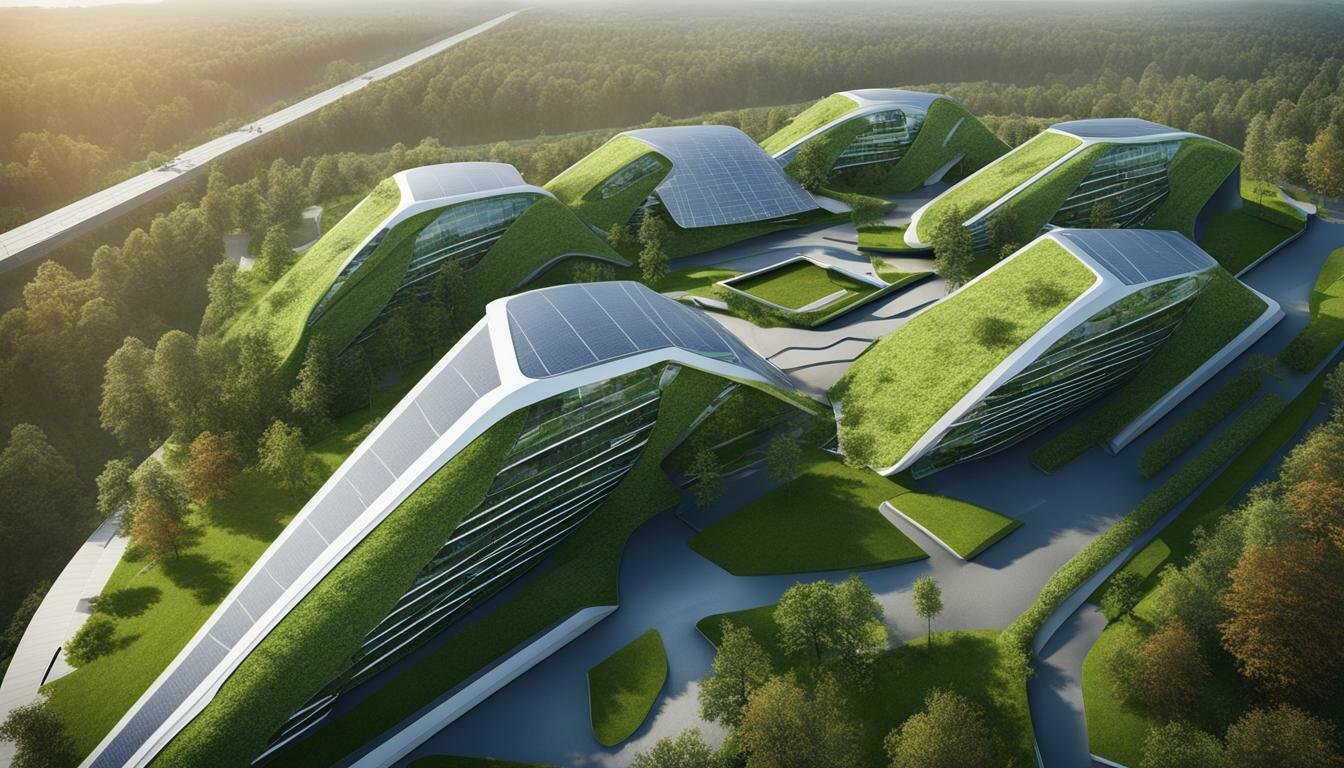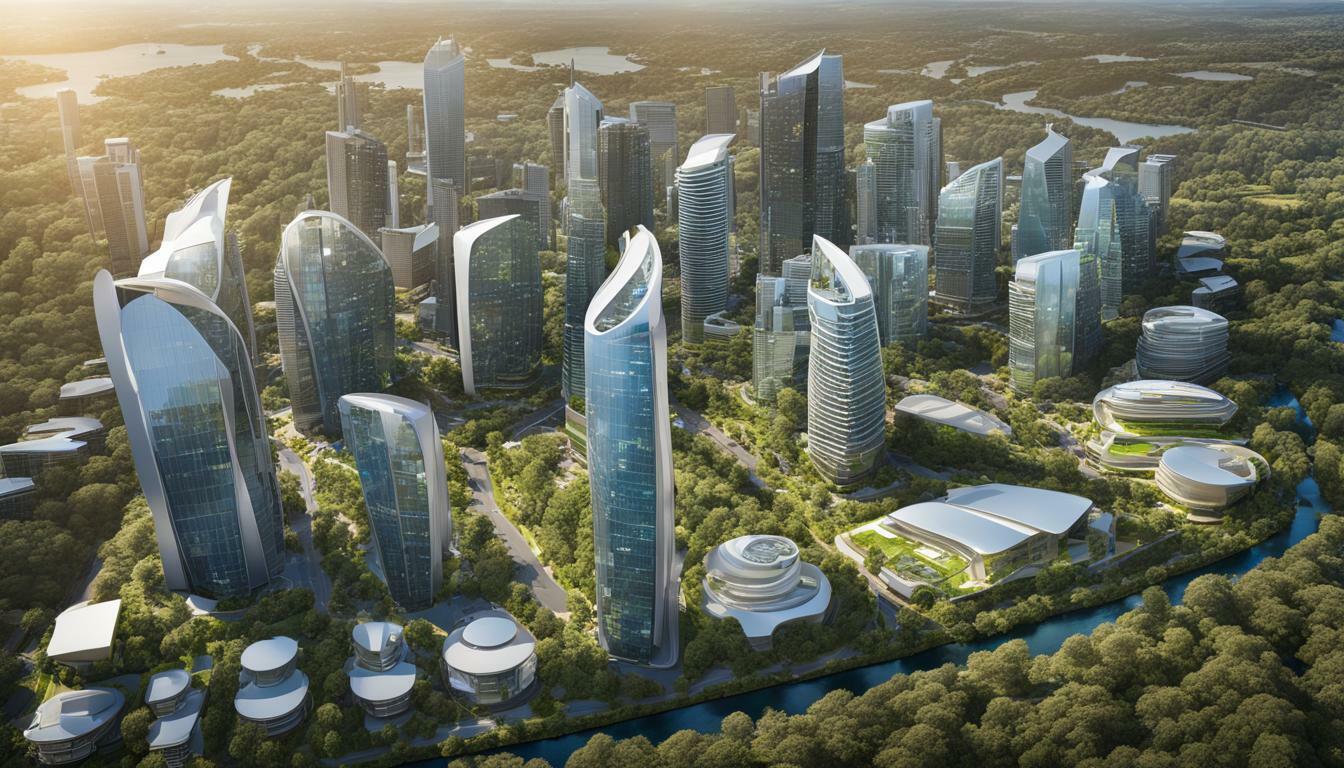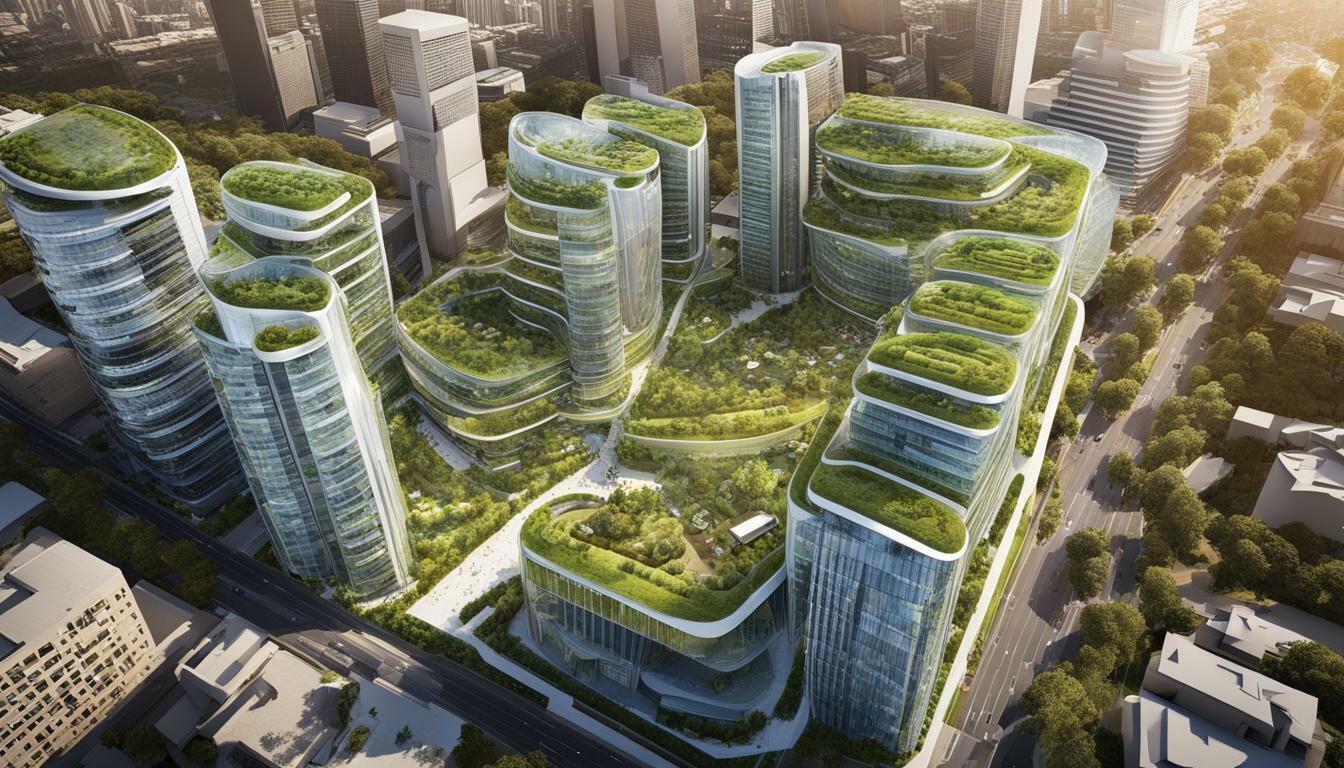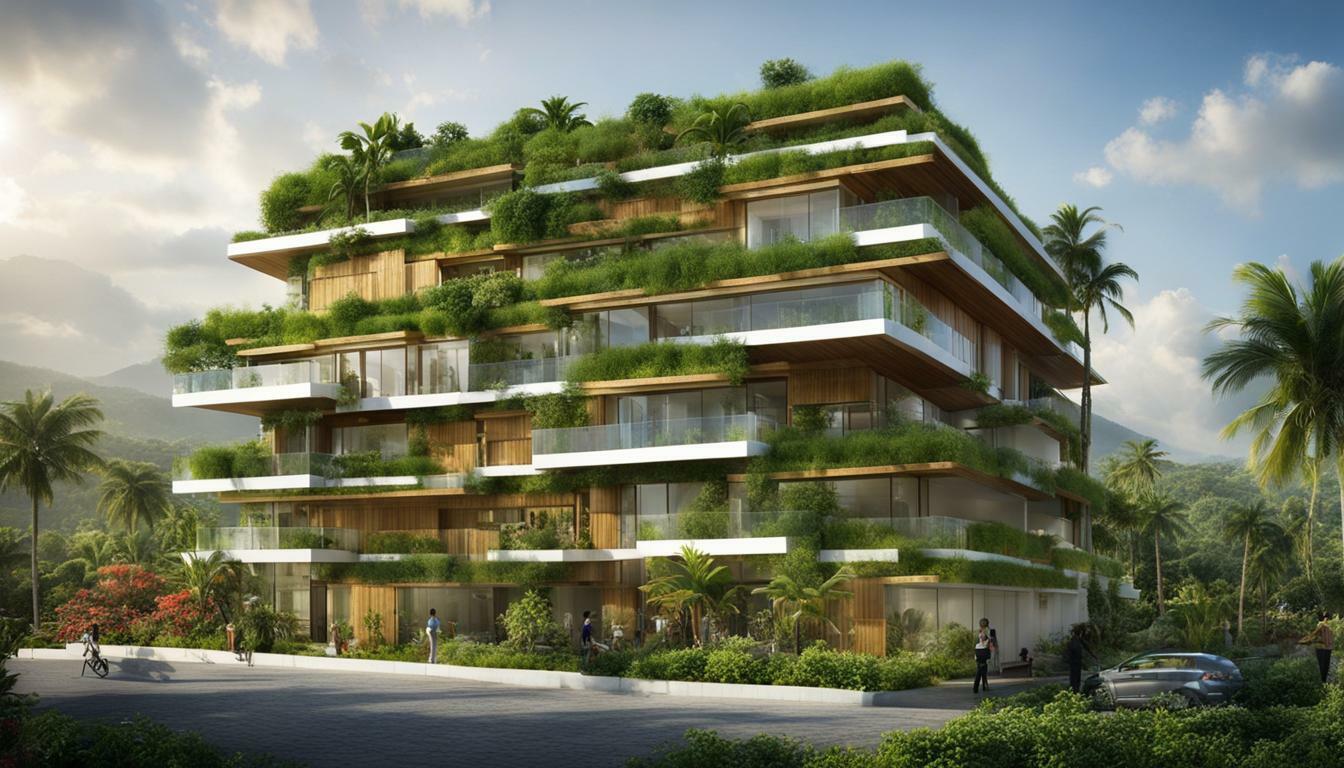Discover The Future of Barbados Green Building Innovation
The future of Barbados green building innovation looks promising, as the country continues to make significant strides in sustainable construction practices. With a strong commitment to environmental conservation and a desire to reduce carbon emissions, Barbados is embracing green building techniques to create a more sustainable future.
One important aspect of green building innovation in Barbados is the emphasis on energy efficiency. The Barbados National Standard for Energy Efficiency in Buildings sets guidelines and regulations for constructing energy-efficient buildings. These standards cover aspects such as insulation, lighting, ventilation, and appliances, ensuring that new construction projects adhere to strict energy efficiency requirements.
In addition to energy efficiency, Barbados is also focusing on renewable energy sources to power its buildings. Solar power, in particular, has gained popularity on the island. The government has implemented various incentives and rebate programs to encourage the installation of solar panels, making it more affordable for individuals and businesses to adopt this clean energy source.
Another area of green building innovation in Barbados is water conservation. As an island nation, Barbados faces water scarcity challenges. To address this issue, the country has implemented rainwater harvesting systems in many new construction projects. These systems capture and store rainwater for non-potable uses such as irrigation and toilet flushing. By reducing reliance on the municipal water supply, Barbados can conserve precious freshwater resources.
Furthermore, Barbados recognizes the importance of sustainable materials in green building. The government has implemented guidelines for the use of environmentally friendly materials, encouraging the use of locally sourced, recycled, and low-impact materials in construction projects. By promoting sustainable materials, Barbados aims to minimize the environmental impact of the building industry and create a more circular economy.
Barbados has also taken steps to educate and train professionals in green building practices. The Barbados Sustainable Energy Authority offers training and certification programs for architects, contractors, and engineers, equipping them with the knowledge and skills needed to design and construct sustainable buildings. This emphasis on education ensures that green building practices are not only implemented but also upheld and improved upon in the future.
The government of Barbados has demonstrated its commitment to green building innovation through various policy initiatives. The Barbados Green Economy Policy seeks to promote sustainable development across various sectors, including the building industry. This policy provides a roadmap for transitioning to a green economy, with specific targets and actions for the construction sector.
Additionally, the Barbados Building Code includes provisions for green building practices, such as the use of renewable energy and water-saving technologies. By incorporating these requirements into the building code, Barbados ensures that green building practices are not just voluntary but become standard practice in the construction industry.
Barbados’ green building innovation has already yielded positive results. The country has seen an increase in the number of buildings achieving LEED (Leadership in Energy and Environmental Design) certification, a globally recognized green building rating system. These certified buildings showcase Barbados’ commitment to sustainability and serve as examples for future construction projects.
Key Takeaways
- Barbados is committed to green building practices to create a sustainable future.
- The country places emphasis on energy efficiency, renewable energy, water conservation, and sustainable materials in green building innovation.
- Barbados provides training and certification programs for professionals in the construction industry to uphold and improve green building practices.
- The government of Barbados has implemented policies and building codes to promote and standardize green building practices.
- Barbados has seen an increase in LEED-certified buildings as a result of its green building innovation.
Emphasis on Energy Efficiency in Barbados Green Building
One important aspect of green building innovation in Barbados is the emphasis on energy efficiency. The Barbados National Standard for Energy Efficiency in Buildings sets guidelines and regulations for constructing energy-efficient buildings. These standards cover aspects such as insulation, lighting, ventilation, and appliances, ensuring that new construction projects adhere to strict energy efficiency requirements.
By focusing on energy efficiency, Barbados aims to reduce its energy consumption and carbon emissions, while also saving money on energy costs. Energy-efficient buildings use less energy than traditional buildings, which not only reduces the impact on the environment but also helps to lower energy bills for homeowners and businesses.
The emphasis on energy efficiency in Barbados green building also aligns with the country’s commitment to sustainability. By reducing energy consumption and using renewable energy sources, Barbados can decrease its reliance on fossil fuels and move towards a more sustainable future.
The importance of energy efficiency in green building practices is not unique to Barbados. Many countries around the world are adopting similar standards and regulations, recognizing the need to reduce energy consumption and mitigate climate change. However, Barbados is taking a proactive approach in implementing these standards, demonstrating its strong commitment to sustainable construction practices.

Overall, the emphasis on energy efficiency in Barbados green building is a critical component of the country’s sustainable development. By promoting energy-efficient construction practices, Barbados is creating a more sustainable and environmentally friendly built environment, reducing energy costs and carbon emissions, and paving the way for a more sustainable future in the Caribbean region.
Adoption of Renewable Energy Sources in Barbados Green Building
In addition to energy efficiency, Barbados is also focusing on renewable energy sources to power its buildings. Solar power, in particular, has gained popularity on the island due to its abundant sunshine. The government has implemented various incentives and rebate programs to encourage the installation of solar panels, making it more affordable for individuals and businesses to adopt this clean energy source.
The adoption of renewable energy systems in Barbados green building is integral to the country’s commitment to reducing carbon emissions and combating climate change. By transitioning to renewable energy sources, Barbados can reduce its reliance on fossil fuels and create a more sustainable future for generations to come.
In addition to solar power, Barbados is exploring other renewable energy sources such as wind and geothermal energy. These sources have the potential to power buildings and reduce the country’s carbon footprint, further cementing Barbados’ position as a leader in sustainable living in the Caribbean.
The use of green building materials in Barbados is also contributing to the adoption of renewable energy systems. Energy-efficient materials such as low-emissivity windows and insulated concrete forms reduce the amount of energy needed to heat and cool buildings, reducing the need for non-renewable energy sources.
The Barbados government’s commitment to renewable energy and sustainable living is evident in its Green Economy Policy. This policy aims to promote sustainable development and reduce dependence on fossil fuels across various sectors, including the construction industry. The policy includes specific targets and actions for the adoption of renewable energy sources in building projects.
The adoption of renewable energy systems in Barbados green building is not just environmentally responsible, but also economically feasible. By reducing energy costs, individuals and businesses can experience long-term savings and a more sustainable financial future. The government’s incentives and rebate programs for renewable energy adoption make it an attractive and affordable option for all.
Overall, the adoption of renewable energy sources is a promising trend in Barbados’ green building innovation. By focusing on sustainable practices such as the use of green building materials and education in sustainable living, Barbados can continue to lead the way in creating a more environmentally friendly built environment.

Water Conservation in Barbados Green Building
Another area of green building innovation in Barbados is water conservation. As an island nation, Barbados faces water scarcity challenges. To address this issue, the country has implemented rainwater harvesting systems in many new construction projects. These systems capture and store rainwater for non-potable uses such as irrigation and toilet flushing. By reducing reliance on the municipal water supply, Barbados can conserve precious freshwater resources.
These systems are designed to be eco-friendly, requiring minimal maintenance and energy. They are also cost-effective and can help reduce water bills for homeowners and businesses in the long run. In addition to rainwater harvesting, Barbados also promotes the use of low-flow fixtures and appliances to further reduce water consumption. By implementing these measures, Barbados can conserve water resources and create a more sustainable future.
Green building techniques in Barbados not only promote water conservation but also support the preservation of marine ecosystems. The island’s coral reefs and marine life are threatened by pollution and water runoff from construction sites. By implementing rainwater harvesting systems and other water conservation measures, builders can reduce the impact of construction on marine environments and preserve these precious natural resources for future generations.
Overall, water conservation is an essential aspect of green building innovation in Barbados. By implementing sustainable construction practices that conserve water resources, the country can create a more sustainable and resilient built environment. Through the use of rainwater harvesting systems and low-flow fixtures, Barbados is setting an example for other countries and demonstrating its commitment to environmental conservation and sustainability.

Discover The Future of Barbados Green Building Innovation.
The future of Barbados green building innovation looks promising, as the country continues to make significant strides in sustainable construction practices. With a strong commitment to environmental conservation and a desire to reduce carbon emissions, Barbados is embracing green building techniques to create a more sustainable future.
Importance of Sustainable Materials and Education in Barbados Green Building
Furthermore, Barbados recognizes the importance of sustainable materials in green building. The government has implemented guidelines for the use of environmentally friendly materials, encouraging the use of locally sourced, recycled, and low-impact materials in construction projects. By promoting sustainable materials, Barbados aims to minimize the environmental impact of the building industry and create a more circular economy.
Barbados has also taken steps to educate and train professionals in green building practices. The Barbados Sustainable Energy Authority offers training and certification programs for architects, contractors, and engineers, equipping them with the knowledge and skills needed to design and construct sustainable buildings. This emphasis on education ensures that green building practices are not only implemented but also upheld and improved upon in the future.
The government of Barbados has demonstrated its commitment to green building innovation through various policy initiatives. The Barbados Green Economy Policy seeks to promote sustainable development across various sectors, including the building industry. This policy provides a roadmap for transitioning to a green economy, with specific targets and actions for the construction sector.
Additionally, the Barbados Building Code includes provisions for green building practices, such as the use of renewable energy and water-saving technologies. By incorporating these requirements into the building code, Barbados ensures that green building practices are not just voluntary but become standard practice in the construction industry.
Barbados’ green building innovation has already yielded positive results. The country has seen an increase in the number of buildings achieving LEED (Leadership in Energy and Environmental Design) certification, a globally recognized green building rating system. These certified buildings showcase Barbados’ commitment to sustainability and serve as examples for future construction projects.
In conclusion, Barbados is paving the way for green building innovation in the Caribbean region. Through its focus on energy efficiency, renewable energy, water conservation, sustainable materials, and education, the country is creating a more sustainable and environmentally friendly built environment. With supportive government policies and a commitment from professionals in the construction industry, the future of Barbados’ green building innovation looks promising.
FAQ
Q: What is Barbados green building?
A: Barbados green building refers to the use of sustainable construction practices and environmentally friendly techniques in the design, construction, and operation of buildings in Barbados. It aims to reduce carbon emissions, conserve energy and water, and promote the use of renewable energy sources.
Q: What are the energy efficiency guidelines in Barbados?
A: The Barbados National Standard for Energy Efficiency in Buildings sets guidelines and regulations for constructing energy-efficient buildings in Barbados. These guidelines cover aspects such as insulation, lighting, ventilation, and appliances to ensure that new construction projects adhere to strict energy efficiency requirements.
Q: How is renewable energy being used in Barbados green building?
A: Barbados is focusing on the adoption of renewable energy sources, particularly solar power, in powering its buildings. The government has implemented incentives and rebate programs to encourage the installation of solar panels, making it more affordable for individuals and businesses to adopt this clean energy source.
Q: How is water conservation addressed in Barbados green building?
A: Water conservation is a priority in Barbados green building due to water scarcity challenges. The country has implemented rainwater harvesting systems in many new construction projects to capture and store rainwater for non-potable uses such as irrigation and toilet flushing, reducing reliance on the municipal water supply.
Q: What is the importance of sustainable materials and education in Barbados green building?
A: Barbados promotes the use of sustainable materials, including locally sourced, recycled, and low-impact materials, in green building practices. The government has implemented guidelines for their use to minimize the environmental impact of the building industry. Additionally, the Barbados Sustainable Energy Authority offers training and certification programs to educate professionals in green building practices.








